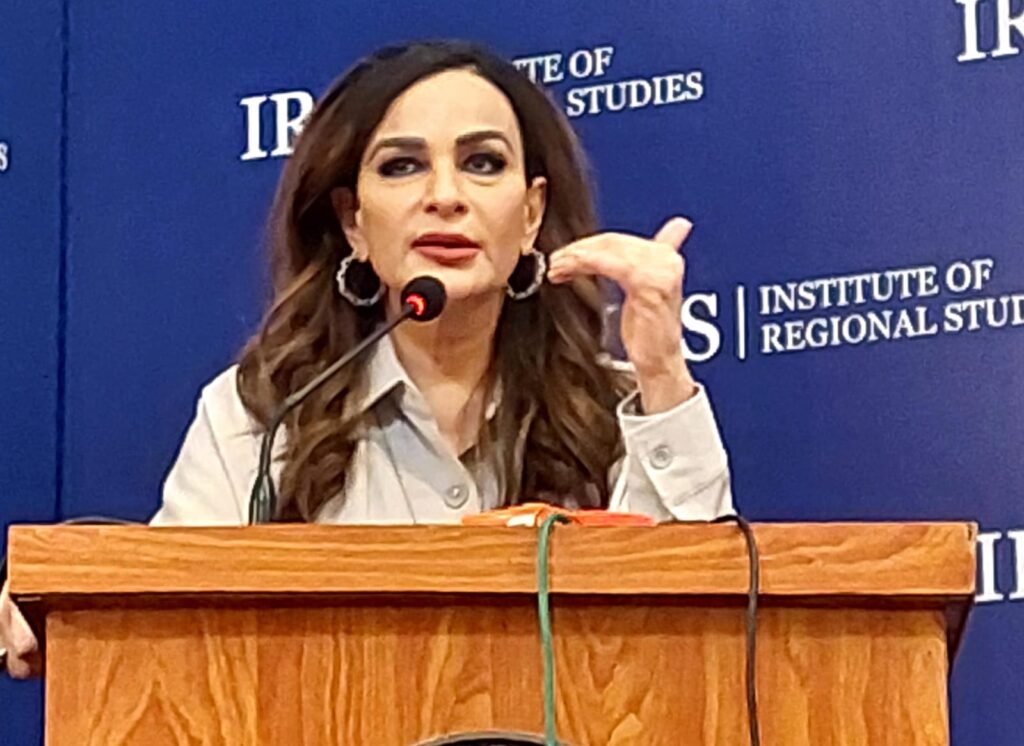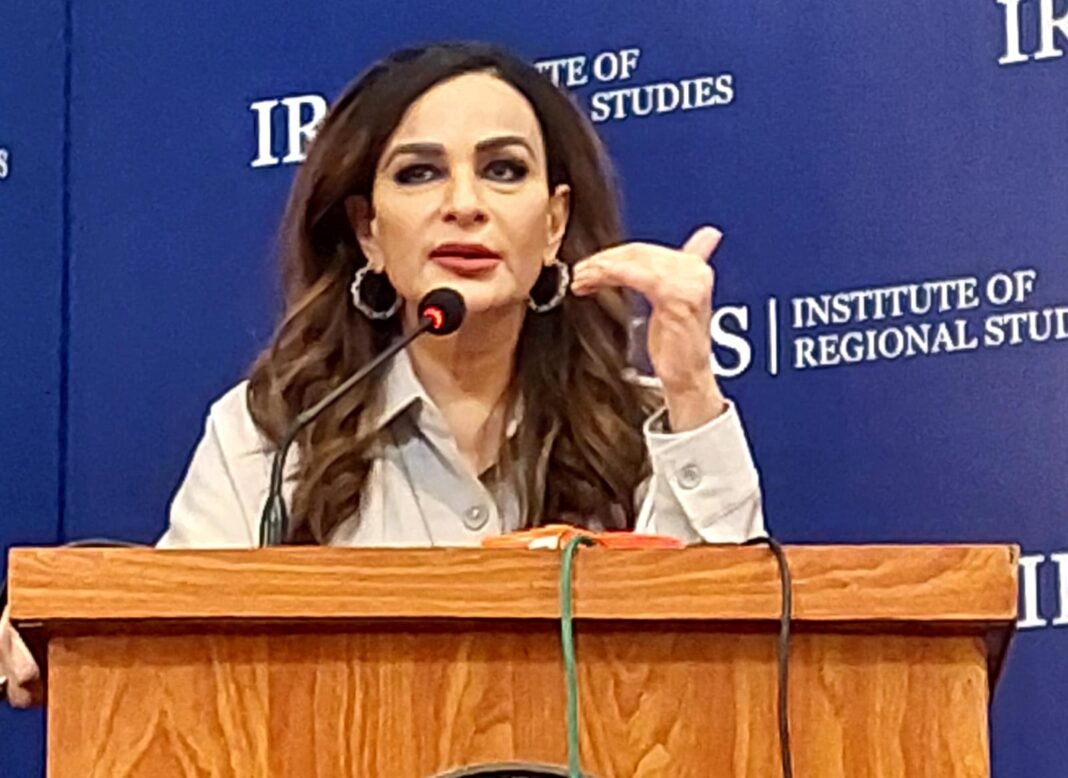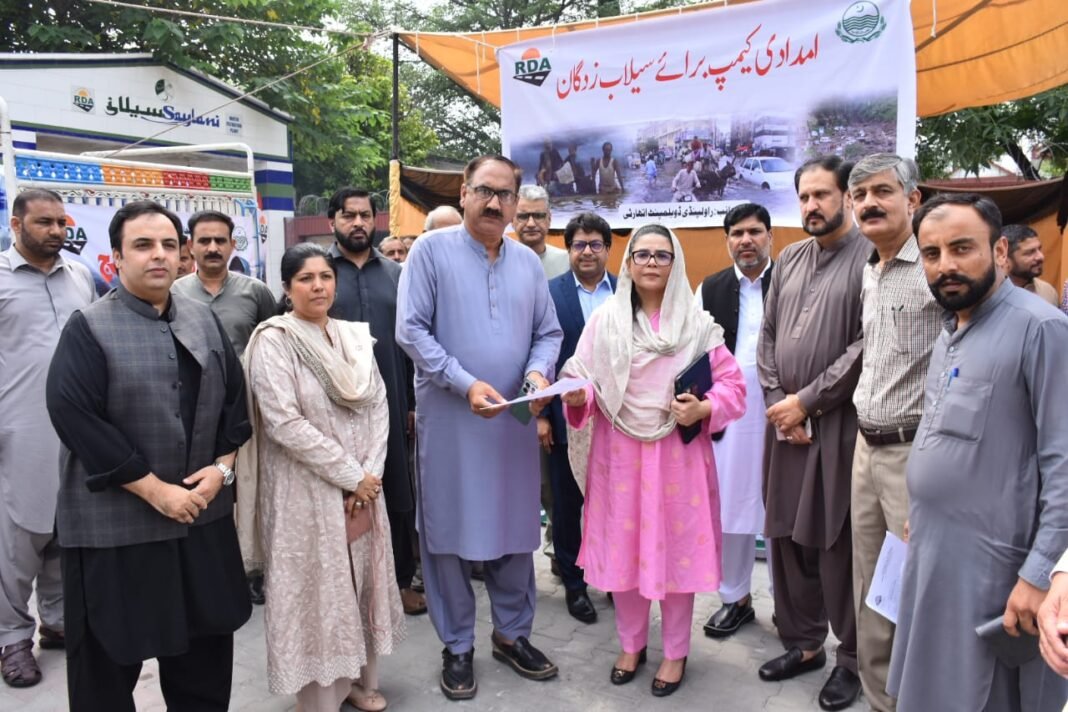
Islamabad : Chair of Senate Standing Committee on Climate Change Senator Sherry Rehman has expressed grave concern over the destruction of crops across 28 districts due to unprecedented floods still ravaging Pakistan in wave after wave, warning that Pakistan is now in a real flood emergency.
She stressed that the scale of losses in Punjab alone – according to reports like the PCB’s suggest that 60% of rice, 35% of cotton, and 30% of sugarcane crops have been completely destroyed. The recent floods in Punjab have inundated over 1.3 million acres of farmland along the eastern rivers, inflicting heavy losses on Kharif crops—most notably cotton—and sparking concerns over rising food inflation.
The disaster has displaced nearly two million people, engulfed 2,000 villages, and forced the evacuation of around 760,000 residents along with 516,000 heads of livestock from the affected regions.
Satellite imagery from 24 districts of Punjab, spanning the command areas of the Sutlej, Ravi, and Chenab rivers, reveals that approximately 3,661 square kilometres—about 4.7 percent of the province’s total area—remained submerged under floodwaters.
Senator Rehman said the level of ongoing devastation first in KP and Punjab, now in South Punjab and on way to Sindh, should serve as a wake-up call for urgent agricultural reforms among other measures to protect livelihoods under extreme stress .
“Most important at this stage is the number of people displaced of course, but out of all segments it is farmers and livestock owners whose crops and grazing lands have been destroyed by these floods.
Most have no capital or crop insurance to fall back on, leaving many thousands facing potential destitution. Pakistan still does not have a fully-fledged crop insurance policy due to institutional and financial challenges. Insurance companies and banks have resisted such initiatives, while the government lacks the resources to provide a safety net. The limited Crop Loan Insurance Scheme launched in 2008 only covers loans taken from banks, not the actual crop damage, and most small farmers in rural areas do not even qualify for these loans. This leaves our most vulnerable farmers completely exposed to climate shocks,” said Senator Rehman.
She urged the government to move forward immediately with a national crop insurance policy that provides real coverage to small and marginal farmers, not just large landholders with bank loans.
“As an emergency response, the government must urgently provide seeds, fertilizers, and targeted subsidies for immediate replanting. Cash assistance should be given directly to affected farming families to prevent further rural impoverishment. In 2010, the FAO-led recovery plan helped farmers by distributing seeds, providing livestock support, and rehabilitating irrigation systems. A similar comprehensive approach is needed today,” said Senator Rehman.
Calling for smarter disaster response tools, she added:
“Satellite technology must be deployed to rapidly map flood damage and guide aid. In 2022, multi-sensor satellite data was successfully used to estimate crop-specific losses after floods, providing evidence-based recovery planning. Synthetic Aperture Radar (SAR) satellites can map flood extent with accuracy, while optical satellites can detect changes in vegetation cover before and after floods. Pakistan must integrate such systems into its disaster management response.”
“Pakistan’s agricultural system is collapsing under the weight of climate change. If we do not take decisive action now, the food crisis due to floods will continue to deepen, hitting both rural and urban populations with unbearable price shocks,” concluded Senator Rehman.
Sohail Majeed is a Special Correspondent at The Diplomatic Insight. He has twelve plus years of experience in journalism & reporting. He covers International Affairs, Diplomacy, UN, Sports, Climate Change, Economy, Technology, and Health.






![logo-1[1]](https://globalnewspakistan.com/wp-content/uploads/2025/01/logo-11-e1737618310315-300x187.png)